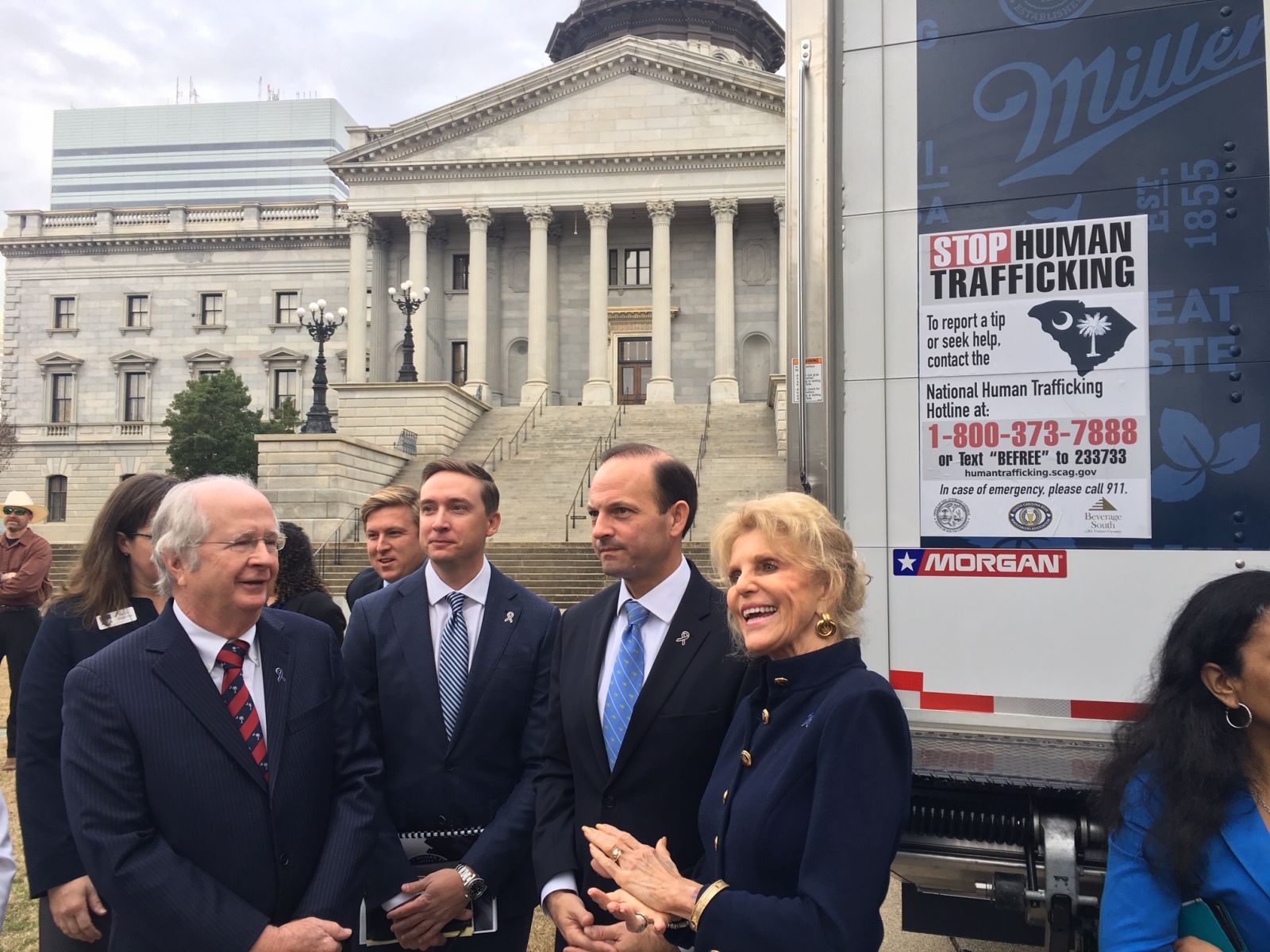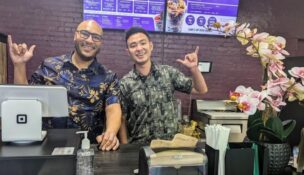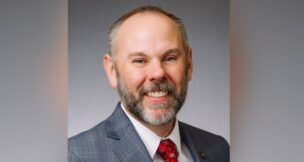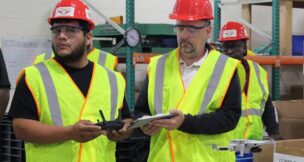S.C. beer wholesalers join campaign against human trafficking
Staff //January 13, 2020//
The South Carolina attorney general’s campaign against human trafficking has a new partner among the business associations joining state law enforcement agencies and social services to educate their members and the public.
At Friday’s presentation of the S.C. Human Trafficking Task Force 2019 Annual Report, state Attorney General Alan Wilson also announced the participation of the S.C. Beer Wholesalers Association. The association is one of several business groups statewide participating in the prevention of human trafficking, including the S.C. Restaurant and Lodging Association, S.C. Trucking Association, and S.C. Hospital Association.
“All of these organizations, they intersect with human trafficking very differently than others,” Wilson said. “We need a complete 360 degree angle on this crime.”
 Wilson said employees who work in hospitals, restaurants and hotels and who drive trucks can spot victims of human trafficking if they know what to look for. Employee education in awareness and identification of human trafficking is included in the partnerships.
Wilson said employees who work in hospitals, restaurants and hotels and who drive trucks can spot victims of human trafficking if they know what to look for. Employee education in awareness and identification of human trafficking is included in the partnerships.
The beer wholesalers association will distribute handouts to retailers. Lance Boozer, executive director of the S.C. Beer Wholesalers Association, said the more than 2,500 people who work throughout the state for beer wholesalers, making stops at 11,000 retail accounts statewide, can spread the word and keep a lookout for potential victims.
“Anytime we’re making a connection — someone at a business, or a consumer — that’s an opportunity to educate the public, so we thought we were in the perfect position to raise awareness,” Boozer said. “With all of our employees being trained to recognize the signs of human trafficking, they’ll all be equipped with these quick reference cards that have the national human trafficking hotline on them. They’ll also have some indications of what to look out for in the market.”
The BWA also is putting signs with the national human trafficking hotline number on hundreds of its members’ trucks, which travel the state’s roads every day.
“Hundreds of thousands of motorists across the state will be seeing those every day, and we think that’s the best way to raise awareness for us,” Boozer said.
Boozer said the association’s members and employees have been eager to get involved in organized anti-human trafficking efforts. He hopes their enthusiasm encourages other business organizations and associations statewide to help stop human trafficking.
“This is something that a lot of folks don’t really know about. And when you tell them about it, they’re absolutely shocked,” he said. “It’s something that you think about happening in another country, or on TV or in the movies. It’s happening right here in South Carolina. And our men and women, we work and live here, and we’re all South Carolinians and we want to make sure this is not happening in South Carolina.”
Data included in the 2019 annual report shows a 360% increase in the total number of trafficking victims recorded in South Carolina to 678, compared to 188 in 2018. The number of cases reported in 2019 increased from 127 in 2018 to 156.
Wilson said improved public awareness is leading to more cases being reported and more victims coming forward.
“The crime was already there. The trafficking was already there,” he said. “We’re measuring the problem and we’re managing the problem.”
Horry County has the highest rate of human trafficking reports, followed by Greenville County, Richland County, Dorchester County and Charleston County. Beaufort County, which was among the top five counties in 2018, was replaced by Dorchester County in 2019.
“This is where the phone calls are coming from” Wilson said of the top five reporting counties. “An increase in reports is not a bad thing.”
Data from the National Human Trafficking Hotline shows an increase in labor trafficking cases in South Carolina to 35 in 2019, up from 27 in 2018. The state human trafficking task force is organizing a labor trafficking roundtable in 2020.
January is National Human Trafficking Awareness Month. At Friday’s news conference, Peggy McMaster, wife of S.C. Gov. Henry McMaster, read a proclamation declaring January 2020 Human Trafficking Awareness Month in South Carolina.
















